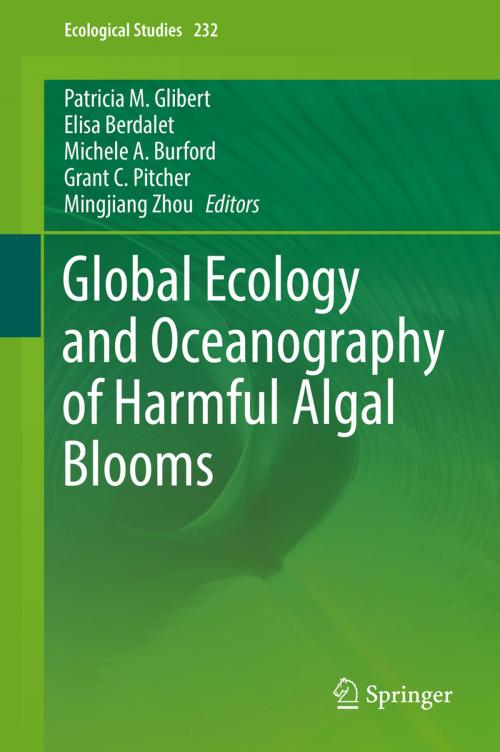Global Ecology and Oceanography of Harmful Algal Blooms
Nonfiction, Science & Nature, Science, Biological Sciences, Marine Biology, Ecology| Author: | ISBN: | 9783319700694 | |
| Publisher: | Springer International Publishing | Publication: | April 26, 2018 |
| Imprint: | Springer | Language: | English |
| Author: | |
| ISBN: | 9783319700694 |
| Publisher: | Springer International Publishing |
| Publication: | April 26, 2018 |
| Imprint: | Springer |
| Language: | English |
Harmful algal blooms (HABs) - blooms that cause fish kills, contaminate seafood with toxins, or cause human or ecological health impacts and harm to local economies - are occurring more often, in more places and lasting longer than in past decades. This expansion is primarily the result of human activities, through increased nutrient inputs and various aspects of climate change.
The Global Ecology and Oceanography of Harmful Algal Blooms (GEOHAB) programme promoted international collaboration to understand HAB population dynamics in various oceanographic regimes and to improve the prediction of HABs.
This volume introduces readers to the overarching framework of the GEOHAB programme, factors contributing to the global expansion of harmful algal blooms, the complexities of HABs in different habitats, and the forward-looking issues to be tackled by the next generation of GEOHAB, GlobalHAB.
The programme brought together an international team of contributing scientists and ecosystem managers, and its outcomes will greatly benefit the international research community.
Harmful algal blooms (HABs) - blooms that cause fish kills, contaminate seafood with toxins, or cause human or ecological health impacts and harm to local economies - are occurring more often, in more places and lasting longer than in past decades. This expansion is primarily the result of human activities, through increased nutrient inputs and various aspects of climate change.
The Global Ecology and Oceanography of Harmful Algal Blooms (GEOHAB) programme promoted international collaboration to understand HAB population dynamics in various oceanographic regimes and to improve the prediction of HABs.
This volume introduces readers to the overarching framework of the GEOHAB programme, factors contributing to the global expansion of harmful algal blooms, the complexities of HABs in different habitats, and the forward-looking issues to be tackled by the next generation of GEOHAB, GlobalHAB.
The programme brought together an international team of contributing scientists and ecosystem managers, and its outcomes will greatly benefit the international research community.















